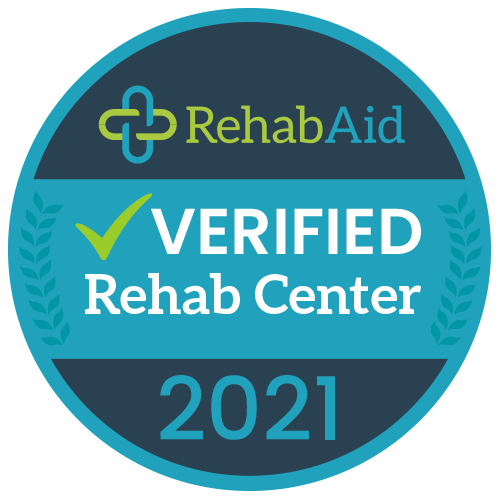|
The Four Modules of DBT
DBT, or dialectical-behavioral therapy, is an evidenced-based treatment originally created by Marsha Linehan, Ph.D., for use in the treatment of patients diagnosed with borderline personality disorder (BPD). Those with BPD often experience intense mood swings, have challenging relationships, and engage in self-injurious behaviors. Thus, the core modules of DBT were developed to center on skills to increase awareness to emotional experiences, cope with overwhelming emotions, tolerate unpleasant feelings and situations, and communicate with others in an effective way. Although DBT was originally used for treating BPD, these skills are truly applicable to anyone, as all humans, at some point, feel uncomfortable feelings, encounter challenging situations, and struggle in communicating with others. Mindfulness The first module of DBT, mindfulness, centers on increasing awareness to the present moment. Mindfulness skills aim to increase the ability to be aware of what is going on in the present moment. This means awareness of not only what is going on in the moment externally (what is happening around you), but also what is going on in the moment internally (what is happening inside of you). Through being mindful of internal experiences, like thoughts, feelings, and physical sensations, we can gain awareness as to how these things effect our mood, behavior, and interactions. Mindfulness skills are the foundation for the rest of the DBT modules. Skills taught in the core mindfulness module include:
Distress Tolerance The second DBT module, distress tolerance, focuses on skills to increase resilience and manage emotions during stressful times. So many of us (consciously or subconsciously) seek to “numb out” during difficult times, turning to substances or other unhealthy behaviors. While these ways of “coping” may feel good in the moment, they are ultimately unhelpful. Distress tolerance skills, sometimes referred to as “crisis survival skills” aren’t necessarily about taking away the feelings or the stressful situation, but more about increasing the capacity to navigate these experiences in an effective way. Skills taught in the distress tolerance module include:
Emotion Regulation The third module of DBT, emotion regulation, teaches skills to promote increased understanding of the function of emotions, as well as the action urges that often accompany these emotions. This module also provides ways to decrease the intensity of strong emotions, and approaches to “ride” an emotional wave, without having to take action. Skills taught in the emotion regulation module include:
Interpersonal Effectiveness The final DBT module, interpersonal effectiveness incorporates skills that look similar to those taught in some assertiveness or interpersonal problem-solving trainings. These skills focus on identifying needs in relationships, learning when (and how) to say “no”, and dealing with interpersonal conflict. Each skill taught in this module shares a goal of maintaining respect, for oneself and for others. The skills taught in the interpersonal effectiveness module include:
From EMDR to meditation, I did so much and was able to finally let go of many things that not only haunted me, but kept me in a prison which was only constructed by me. When anxiety attacks happened, I had an array of techniques you (Wen Chi) taught me to use which helped tremendously!" ~Trevor S.~
What is DBT? Dialectical Behavior Therapy (DBT) is a therapy designed to help people change patterns of behavior that are not helpful, such as self-harm, suicidal thinking, and substance abuse. This approach works towards helping people increase their emotional and cognitive regulation by learning about the triggers that lead to reactive states and helping to assess which coping skills to apply in the sequence of events, thoughts, feelings, and behaviors to help avoid undesired reactions. DBT assumes that people are doing the best they can but are either lacking the skills or are influenced by positive or negative reinforcement that interferes with their ability to function appropriately. DBT combines standard cognitive behavioral techniques for emotion regulation and reality-testing with concepts of distress tolerance, acceptance, and mindful awareness largely derived from Buddhist meditative practice.* Who can benefit from DBT? Although DBT was originally created for individuals with borderline-personality disorder, it has significantly evolved, proving valuable for a much wider range of people struggling with a variety of mental health and relationship concerns. DBT is often used with individuals who suffer from depression, anxiety, codependency, and alcohol/drug abuse, to name a few. If you are still unsure if you could benefit from DBT, perhaps ask yourself this question – Do I have behaviors or ways of thinking that are potentially becoming harmful to my wellbeing? If you answered yes, or even maybe, then incorporating DBT skills could absolutely be a great approach to providing some relief. Essentially, if you want to improve your quality of life and connections with others, you are a good fit for DBT group! What will I learn about in DBT group at Zen Institute? Learning DBT is like learning a new language. Yet, Zen Institute has created a DBT group that is focused on simplicity and effectiveness. The groups are small, to promote safety, trust, and open discussion. Participants are taught one skill at a time. Each skill is coordinated with a worksheet to reinforce the material. Participants are encouraged to share life experiences and learn from each other. The group is divided into the four major modules of DBT: 1. Mindfulness Mindfulness will challenge you to accept negative thoughts, feelings, or situations as they are, rather than concentrating on how you might want them to be. Mindfulness is a great tool to help you stay in the present and be non-judgmental toward yourself and others. 2. Emotion Regulation Emotion regulation will help you identify and understand the functions of your emotions, and provide you with tools to process overwhelming emotions and channel them into positive action. 3. Distress Tolerance Distress tolerance provides you with tools for self soothing and coping with crisis situations in a positive way. 4. Interpersonal Effectiveness The interpersonal effectiveness module will teach you how to get what you want in your relationships. You will learn to speak up your truth, set healthy boundaries, and create loving relationships. DBT is a unique style of group therapy. The tools learned in DBT group can serve you for a lifetime. This post was contributed by: Jenna Jarrold, MS, LAC, NCC Staff Therapist, Zen Institute *Source: Wikipedia contributors. "Dialectical behavior therapy." Wikipedia, The Free Encyclopedia. Wikipedia, The Free Encyclopedia, 25 May. 2015. Web. 18 Jun. 2015. |
AuthorsJenna Jarrold, MS, LAC, NCC Archives
August 2021
Categories
All
|
Zen Institute Tucson
5210 E Pima Street, Suite 110
Tucson, AZ 85712
877-777-6007
5210 E Pima Street, Suite 110
Tucson, AZ 85712
877-777-6007
© 2012-2024 Zen Institute, LLC. All Rights Reserved
Zen Institute® is a Registered Trademark with the U.S. Patent and Trademark Office
Privacy Policy


 RSS Feed
RSS Feed



